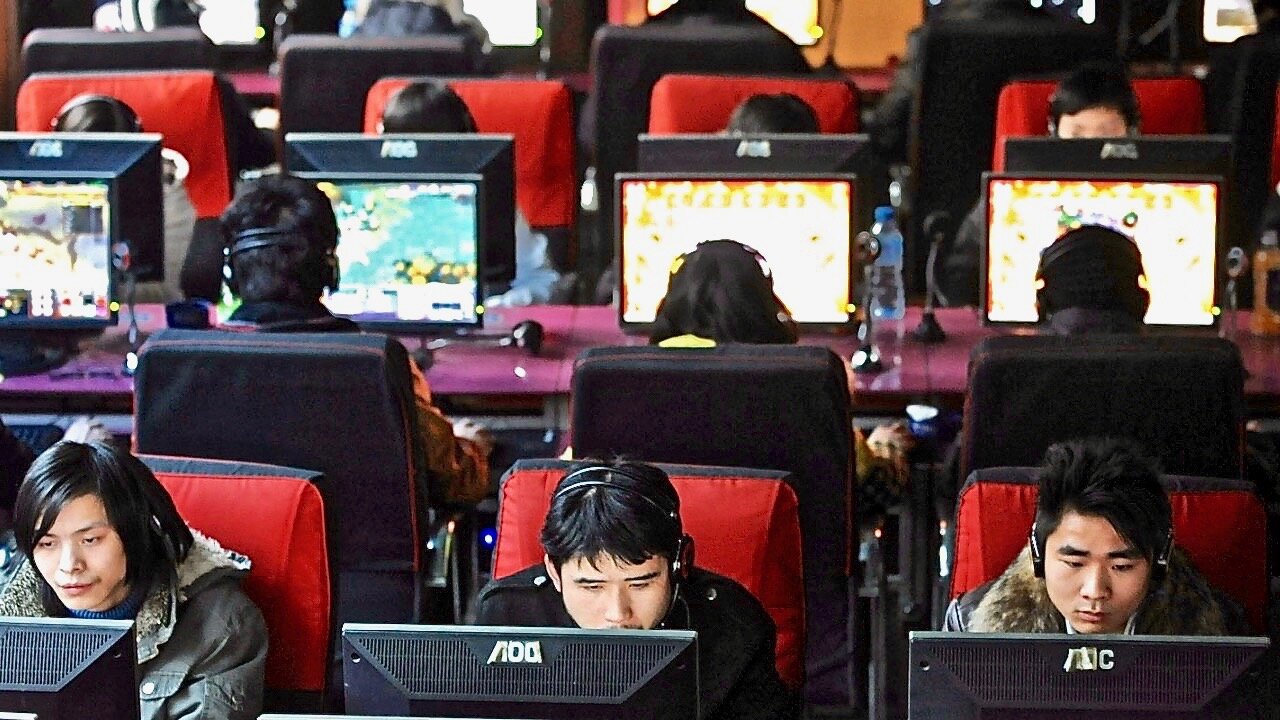Premium Only Content

China's Crazy Population Control Helped By U.S. Tech Companies
How Do You Control 1.4 Billion People? China's social credit system, which becomes mandatory in 2020, aims to funnel all behavior into a credit score. A few months ago, you accidentally defaulted on a phone bill. The mistake affects your credit score: It’s hard to get a loan. You can no longer make jokes about Marco Rubio on Twitter; such remarks will algorithmically define you as a libertarian loon—another sort of person likely to default on social obligations. After a couple of close friends miss their student loan repayments, you can’t even travel: your social circle is now all “discredited, unable to take a single step.” This is the incipient scenario in China, whose state-backed “social credit scheme” will become mandatory for all residents by 2020. The quoted text is from a 2014 State Council resolution which promises that every involuntary participant will be rated according to their “commercial sincerity,” “social security,” “trust breaking” and “judicial credibility.”
Some residents welcome it. Decades of political upheaval and endemic corruption has bred widespread mistrust; most still rely on close familial networks (guanxi) to get ahead, rather than public institutions. An endemic lack of trust is corroding society; frequent incidents of “bystander effect”—people refusing to help injured strangers for fear of being held responsible—have become a national embarrassment. Even the most enthusiastic middle-class supporters of the ruling Communist Party (CCP) feel perpetually insecure. “Fraud has become ever more common,” Lian Weiliang, vice chairman of the CCP’s National Development and Reform Commission, recently admitted. “Swindlers must pay a price.”
The solution, apparently, lies in a data-driven system that automatically separates the good, the bad, and the ugly. But with President Xi Jinping, China’s most authoritarian leader since Mao Zedong, at the helm, much English-language coverage of the plan so far predicts “unprecedented” levels of dictatorial surveillance.
Commercial versions of the nascent national program are already in operation. Ant Financial, the finance arm of e-commerce giant Alibaba, is piloting Sesame Credit, which offers a range of perks, such as travel upgrades and deposit-free car rentals, to top scorers. But Sesame’s system, which assigns a rating between 350 and 950, is murky and complicated. The company says even innocuous activities, like late-night web browsing or buying video games, could see one’s rank downgraded for “irresponsible” behavior. One undergraduate saw her score plummet to 350 after being named in an unresolved civil suit: Sesame had automatically listed her as a laolai, a deadbeat, “subject to enforcement for breaking trust.”
The worst-case scenario is a form of high-tech Stalinism for our brave new world, in which those who toe the line are kept doped with rewards like fast-track visas for countries with compliant customs (developing regions deeply indebted to China via its “One Belt, One Road” could end up having to align themselves with Beijing’s emigration and other policies). Meanwhile, those whom the system considers dissenters, dropouts or deadbeats would be effectively excommunicated from mainstream society. How these miscreants are defined is one of the most worrying aspects. “I have no doubt that the current efforts are intended to produce a more authoritarian state,” Stanley Lubman, a Chinese law specialist at UC Berkeley, tells me.
“Good” behavior is equally subjective. Sesame Credit automatically upgrades customers who purchase curtains or diapers, for example—items which suggest a certain middle-class stability. This is partly because Sesame “is designed to incentivize behaviors that drive profits for Alibaba,” explains Mark Natkin, managing director of Beijing-based Marbridge Consulting, such as “heavier online and offline use of Alibaba’s payment tool, Alipay, and the user’s ability to recruit more friends to join their Alipay [social] circle.” Mrs. Chu, a middle-class working mother in her early 30s, tells me she finds Sesame “very convenient... because I have a high score, I can get refunds [online] quicker, without having to wait to return the items.”
Music: Black Wind (Original Mix) by Dhruva Aliman
Amazon- https://amzn.to/2MbZ3TF
https://music.apple.com/us/artist/dhruva-aliman/363563637
https://dhruvaaliman.bandcamp.com/album/snooper
http://www.dhruvaaliman.com/
Spotify - https://open.spotify.com/artist/5XiFCr9iBKE6Cupltgnlet
-
 1:12
1:12
Indicrat
4 months agoRare Moment When The Truth Slips Out On CNN
1612 -
 15:27
15:27
TSPLY
21 hours agoCNN Forgets President Trump Can Fire Anyone He Wants From The Pentagon
1.44K8 -
 15:13
15:13
Clownfish TV
19 hours agoBluesky Trusts the Science? Scientists FLEEING X for Bluesky!
1.6K5 -
 29:50
29:50
The Finance Hub
14 hours ago $0.75 earnedBREAKING: TULSI GABBARD JUST DROPPED A MAJOR BOMBSHELL!!!
1.49K16 -
 11:32
11:32
ariellescarcella
15 hours ago"Being A Lady Boy Is Exciting!" (This Dude Has A Kid)
2.39K4 -
 1:03:33
1:03:33
The Dan Bongino Show
1 day agoSunday Special with Mike Benz, Michael Knowles, Rep. Tim Burchett and Rep. Andy Harris - 02/23/25
334K1.09K -
 1:36:21
1:36:21
Sarah Westall
12 hours agoViolence Erupting in the Panama Canal, Identifying Enemy Infiltration, Psyops Ongoing w/ Michael Yon
88.2K48 -
 1:56:25
1:56:25
Nerdrotic
14 hours ago $19.01 earnedThe Red Pyramid's Hidden Secrets | Forbidden Frontier #091
68.4K15 -
 2:08:53
2:08:53
vivafrei
23 hours agoEp. 252: Liberals DISQUALIFY Candidate from Race! DOGE Wins & Loses; Rumble Sues BRAZIL! & MORE!
159K265 -
 1:15:12
1:15:12
Josh Pate's College Football Show
13 hours ago $23.97 earnedCFB’s Top 12 Programs | TV Executives & Our Sport | USC Changes Coming | Early Championship Picks
109K3